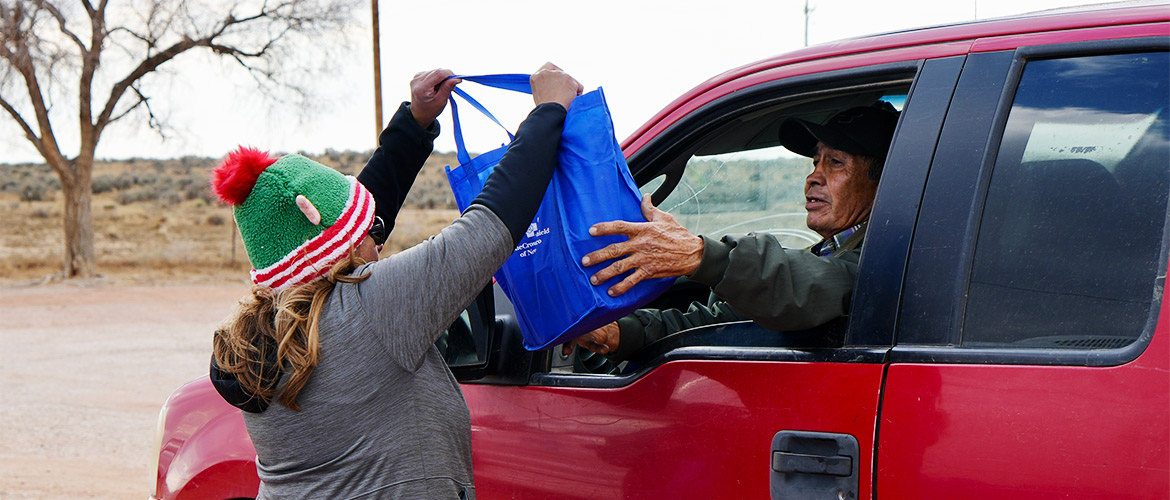Food insecurity persists across the U.S. But for the nearly 170,000 people living on Navajo Nation, the country’s largest Native American tribe, the problem is particularly severe.
The United States Department of Agriculture (USDA) classifies most of Navajo Nation as a food desert. Fourteen full-service grocery stores serve an area nearly the size of West Virginia.
To help address this disparity, Blue Cross and Blue Shield of New Mexico (BCBSNM) recently delivered $20,000 worth of food to more than 1,000 people in the northwest part of the reservation
Laverne Cayaditto, a supervisor at the Torreon Senior Center, says the 50 bags they received made all the difference for the community’s elderly residents.
“Once they see the van and the blue bag, word gets around quick,” says Cayaditto, a 20-year resident of Torreon, adding that many struggle to afford groceries and rely on the center for meals. “They're always very thankful.”
From October through December, BCBSNM Tribal Liaisons and Community Outreach team members traveled to Whitehorse Lake, Pueblo Pintado, Ojo Encino and Torreon to hand out bags containing an assortment of non-perishable items, including canned food, flour, baking powder and pinto beans.
The effort is one of many ways BCBSNM brings food to people in need.
Last month, it teamed up with 100.3 The Peak and other sponsors to hold a Thanksgiving food drive for Storehouse New Mexico, a nonprofit food pantry in Albuquerque. BCBSNM also awarded Meals on Wheels of Albuquerque a grant to help purchase over 20,000 pounds of fresh, local produce for homebound community members.
The lack of nutritious food options and the distance to drive to a grocery store to purchase them contribute to health problems in these communities. Nearly 40% of Navajo Nation members feel that their communities are food insufficient, meaning they sometimes or often don’t have enough to eat. Additionally, many face an hour drive to the nearest grocery store.
Elderly residents who cannot drive themselves rely on family members to shop. During winter months however, rain and snow make it difficult to navigate unpaved roads.
“As a tribal liaison covering the Navajo chapters, I travel through a lot of these areas and I know how isolated they are,” says Julia Platero, a community outreach specialist for BCBSNM. “A lot of these houses don’t have indoor running water or electricity because they’re so isolated from any urban community.”
Platero and the BCBSNM Outreach team finished the three-month food initiative in December by dropping off the last of nearly 1,000 bags of food in Whitehorse Lake and Ojo Encino along with blue stockings filled with fruit and healthy snacks for the holiday season.
The stockings are a long-running tradition that the community looks forward to, Platero says. “There are a lot of folks who have told me that anything helps.”

